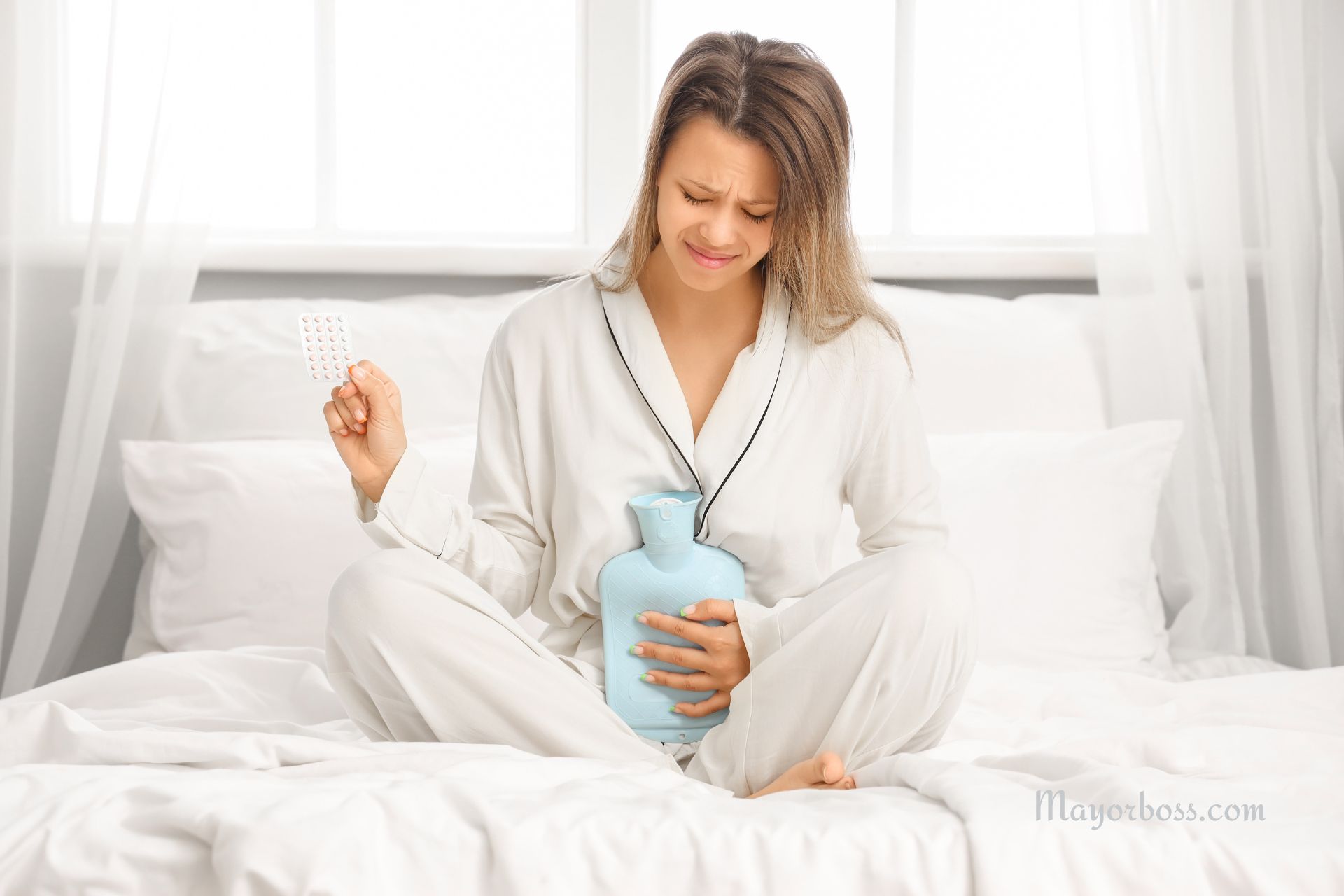7 Home Remedies for Menstrual Cramps that Actually Work!
Many women experience pain during their period. Menstrual cramps can make daily activities hard. Some women use medicines, but others choose home remedies to ease the pain. This article explains seven simple home remedies that may help relieve menstrual cramps. Each remedy has been observed to work well for many women when used safely.

1. Warm Compress
A warm compress on the lower belly can help relax the muscles. The heat helps ease tight muscles and improve blood flow. It is scientifically proven that using heat therapy, like a heating pad or heat pack, worked just as well as pain medicine (NSAIDs) for easing menstrual cramps. You can use a heating pad or a warm towel. Place it on your lower abdomen for 15 to 20 minutes. Repeat this several times a day if needed. Make sure the compress is warm but not too hot to avoid burns.
2. Herbal Teas
Herbal teas can provide a soothing effect during your period. Chamomile, ginger, and peppermint teas are good choices. Chamomile tea can help relax the muscles. Ginger tea may help with pain because it reduces swelling. Peppermint tea can calm the stomach and muscles. Drink one or two cups each day during your period. It is best to avoid too much sugar in your tea.
3. Regular Exercise
Research suggests staying active may help lessen menstrual cramps. Exercise releases endorphins, which are natural pain relievers. Simple exercises like walking, stretching, or doing light yoga can help. These activities improve blood flow and can reduce muscle tension. If your cramps are very bad, start slowly and increase your activity as you feel better. A regular routine of exercise may help lower the pain during your period.
4. Dietary Adjustments
What you eat can change how you feel during your period. Eating fruits, vegetables, and whole grains helps your body and may reduce inflammation. Foods rich in omega-3 fatty acids, such as fish, walnuts, and flaxseeds, may lower swelling and pain. Cutting back on salt and caffeine may help reduce bloating and irritability. Keeping a balanced diet and a food diary can help you notice what foods make your cramps better or worse.
5. Massage Therapy
Massage therapy can help relax the muscles in your abdomen. A gentle massage using circular motions can reduce tightness and pain. You can do this on your own at home or with the help of a massage therapist. Combining massage with a warm compress may give extra relief. Regular massage may help lessen the severity of cramps during your period.
6. Warm Bath
Taking a warm bath can help your muscles relax and reduce pain. A warm bath improves blood flow and helps ease muscle tension. Some women add Epsom salts to their bath. Epsom salts contain magnesium, which may help ease cramps. Soak in a warm bath for 15 to 20 minutes. Make sure the water is warm enough to relax your muscles but not so hot that it makes you uncomfortable.
7. Relaxation Techniques
Stress can make menstrual cramps worse. Using relaxation techniques can help lower stress and reduce pain. Try deep breathing, meditation, or progressive muscle relaxation. For deep breathing, slowly breathe in through your nose and out through your mouth. Meditation helps calm your mind. Progressive muscle relaxation involves tightening and then slowly relaxing each muscle group. Practicing these techniques daily during your period may help lessen the pain.
Takeaway
Home remedies are a natural way to help manage menstrual cramps. A warm compress, herbal teas, and a warm bath work to relax your muscles and improve blood flow. Regular exercise, a healthy diet, and massage therapy help keep your body strong and lower pain. Relaxation techniques can reduce stress and muscle tension. These remedies can be used together safely to help control pain during your period.
Every woman is different. What works for one person may not work for another. It is important to pay attention to your body and try different remedies to find what works best for you. If your cramps are very painful or stop you from doing everyday tasks, speak with your doctor. They can give you more advice and may suggest other treatments.
